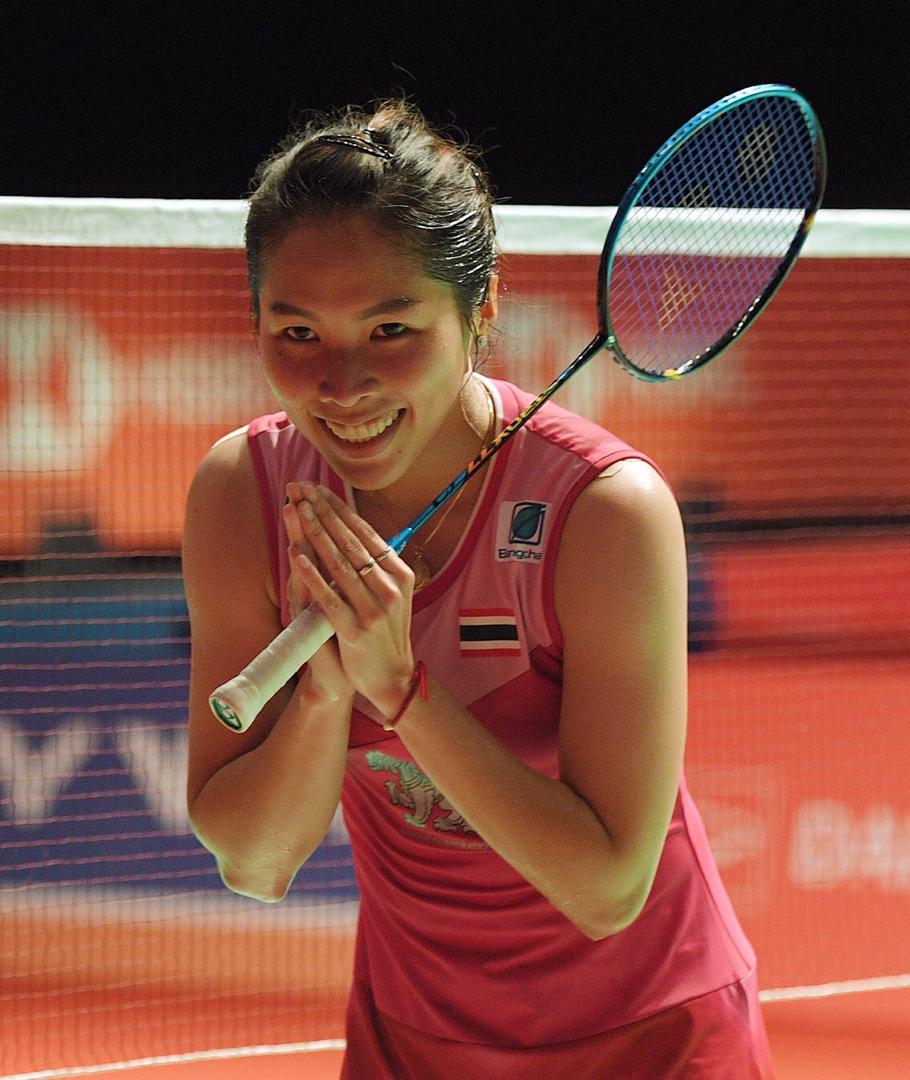Olympic champion Lin Dan admits his task is becoming harder, even though his level went up a gear as he beat his Chinese compatriot and fellow left-hander Tian Houwei to reach the All-England championships quarter-finals on Thursday.
The legendary 31-year-old has not yet returned to his best after more than two years with limited competition, but his 21-15, 21-19 victory over Tian did elevate his standard above that of his tough struggle 24 hours earlier.
Lin had just two short phases when it seemed the former world junior champion from Fujian might seriously challenge him – when Tian repaired a four-point deficit and reached 14-14 in the first game and when the 23-year-old came from a three-point deficit in the second game and led 12-10.
Each time Lin found enough flashes of the exceptional – one disguised clip from the baseline which magically fell to the floor near the net, and one reflex cross-court block against a 180 mile-an-hour smash – to carry him to a respectable success.
But Lin was not particularly impressed with himself. “I was much more relaxed because I was playing against a team mate,” he said. “In terms of mentality there wasn’t any pressure”.
He was similarly candid about how hard is the task which confronts him in his bid for a third successive gold medal in Rio next year.
“Since the scoring changes of 2006 there has been a narrowing of the gap between the stronger and the weaker players,” he said. “It has become more competitive.”
Lin now plays Kento Momota, the unseeded but in-form Japanese player, who followed his defeat of the fourth-seeded Indian, Kidambi Srikanth, with a victory over the German, Marc Zwiebler, a former All-England semi-finalist.
If Lin comes through that he may face another compatriot, the top-seeded world champion Chen Long, who wasted no time in getting past Hsu Jen Hao of Taiwan, 21-7, 21-9.
– creative strokes –
Earlier the other Olympic champion Li Xuerui suffered one of the most saddening defeats of her career, when she lost 21-13, 21-12 to Sun Yu, her young Chinese compatriot.
Li’s wide range of creative strokes, so hard to contain when they are flowing, produced too many mistakes to allow much chance of survival.
It was quite different from when Li appeared as an unknown here in 2012 and won the All-England title, forcing her way belatedly into the Chinese squad, and paving a pathway to London where she won an Olympic gold medal.
“I haven’t recovered properly from a foot injury and my feet really hurt,” Li said.
“I’ve only been training normally for two weeks and I only came to this tournament because I love it. I didn’t expect a lot. I just tried to come and enjoy the game.”
Sun’s quarter-final is against Ratchanok Intanon, the former world champion from Thailand who is still only just 20 and may be making another surge. She has lost only 41 points in four games.
In the same half another former world champion Wang Yihan made an intelligent and tenacious recovery to earn a quarter-final with Saina Nehwal, the third-seeded Indian.
Wang had leads of 16-9 and 20-18 taken away from her in the first game against the surprising Minatsu Mitani, but made difficult tactical adjustments to push on to a 21-23, 21-6, 21-16 win against the world number 17 from Japan.
“Tactically I kept more patient and played to the four corners and kept in the rally rather than take risks,” Wang said. “And that was the key.”
Normally it is the Chinese player’s big smash which is the key, one which has helped create seven wins out of eight against Nehwal.
“I try to look at how opponents are catching me,” Nehwal said, implying she has been studying ways to deal with Wang. “Not many players catch me, but I am trying to improve.” – Agence France-Presse






























